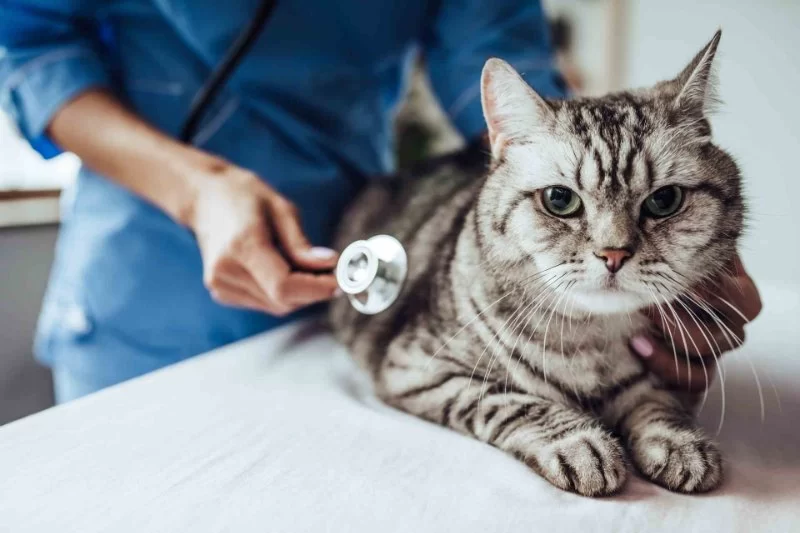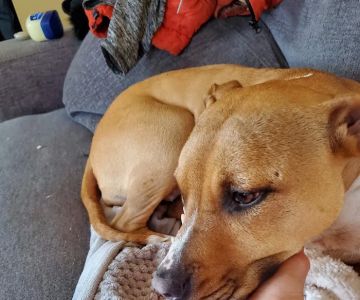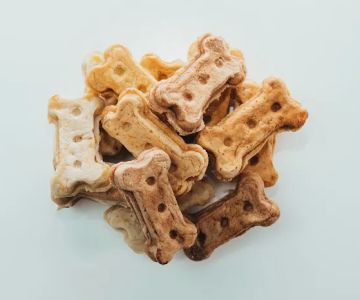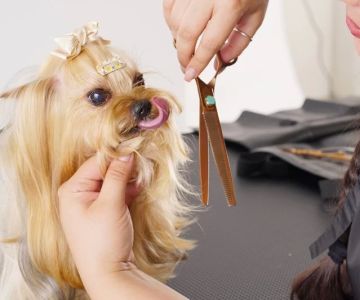- 1 - Understanding feline GI dysbiosis #understanding-feline-gi-dysbiosis
- 2 - What causes GI dysbiosis in cats #what-causes-gi-dysbiosis-in-cats
- 3 - Early signs your cat may be struggling #early-signs-your-cat-may-be-struggling
- 4 - At-home care steps to support gut health #at-home-care-steps-to-support-gut-health
- 5 - Real stories of cats recovering from dysbiosis #real-stories-cats-recovering-from-dysbiosis
- 6 - When to seek veterinary help #when-to-seek-veterinary-help
Understanding Feline GI Dysbiosis
How to Recognize and Treat Pet Feline GI Dysbiosis is becoming an increasingly essential topic for cat owners across the U.S., especially as awareness of digestive health grows. Feline GI dysbiosis refers to an imbalance of the beneficial bacteria in a cat’s digestive tract—an imbalance that can affect digestion, immune function, and overall well-being.
In a healthy feline gut, billions of microbes work together to process food, maintain hydration, regulate immune responses, and support energy levels. When this balance is disrupted—whether by diet, stress, illness, or medication—cats may display a wide range of digestive and behavioral changes. Understanding what dysbiosis looks like is the first step toward helping your cat feel better at home.
What Causes GI Dysbiosis in Cats
1. Dietary imbalances and sudden food changes
Cats are especially sensitive to shifts in diet. A sudden change in food or feeding highly processed diets lacking fiber can disturb beneficial gut bacteria. Even high-quality foods may trigger dysbiosis if they do not match your cat’s individual sensitivities.
2. Stress and environmental disruption
Stress is a major contributor. Moving to a new home, introducing a new pet, loud noises, or schedule disruptions can shift the bacterial balance in the intestines. This connection between stress and gut health helps explain why cats sometimes develop GI symptoms after major life events.
3. Medications and medical procedures
Antibiotics, steroids, and even anesthesia can disrupt the natural bacterial ecosystem, allowing harmful microbes to dominate. While these medications may be necessary, they can temporarily weaken the digestive tract’s ability to function normally.
4. Chronic conditions such as IBD
Inflammatory bowel disease and other gastrointestinal disorders often cause long-term bacterial imbalance. In these cases, dysbiosis is both a symptom and a contributor to ongoing digestive problems.
Early Signs Your Cat May Be Struggling
1. Irregular stool or diarrhea
One of the most noticeable symptoms of feline GI dysbiosis is loose stool or diarrhea. Cats may visit the litter box more frequently, strain to use it, or leave behind soft or irregular waste. These changes should not be ignored, especially if paired with other symptoms.
2. Vomiting or regurgitation
Occasional hairball-related vomiting is normal, but repeated vomiting or small “spit-up” episodes can be signs of digestive upset. When the gut microbiome is unbalanced, the stomach may struggle to process food or regulate acid levels.
3. Reduced appetite or sudden pickiness
A cat who once ate enthusiastically but now avoids meals may be experiencing nausea or abdominal discomfort. GI dysbiosis often makes cats avoid foods they once enjoyed.
4. Behavior changes and lethargy
Cats may hide more often, avoid play, or become irritable when their stomach or intestines are inflamed. Because digestive upset affects energy levels, many cats seem unusually tired or withdrawn.
5. Weight loss and dehydration
Chronic diarrhea or vomiting can lead to dehydration. Some cats lose weight rapidly as their bodies fail to properly absorb nutrients.
At-Home Care Steps to Support Gut Health
1. Transition to a gentle, gut-supportive diet
Many cases of feline GI dysbiosis respond well to carefully chosen foods. Diets high in digestible proteins, moderate in fat, and supplemented with soluble fiber can help restore balance. Avoid abrupt diet changes; instead, transition slowly over 7–10 days to prevent further irritation.
2. Add probiotics and prebiotics
Probiotic supplements help restore beneficial bacteria while prebiotics feed the helpful microbes already present. These supplements come in powders, capsules, or food toppers specifically formulated for cats. Working with trusted sources like Hidden Brook Veterinary can help you select safe, well-tested options.
3. Manage stress through routine and environmental stability
Predictable feeding times, calm living spaces, comfortable hiding spots, and gentle play routines can significantly reduce stress-induced flare-ups. Cats thrive on familiar spaces and reliable schedules.
4. Improve hydration
Gut health depends heavily on hydration. Offering fresh water in multiple quiet places, using a fountain, or incorporating wet food can help support proper digestion.
5. Monitor litter box behavior
Tracking stool consistency and frequency gives you insight into whether home care is helping. Early changes can reveal whether your cat is improving or if veterinary attention is needed.
Real Stories of Cats Recovering from Dysbiosis
1. The stressed shelter cat
A family adopted a shy shelter cat who immediately developed loose stool and vomiting. After a thorough check-up, the veterinarian suspected stress-induced dysbiosis. With probiotics, a limited-ingredient diet, and a stable environment, the cat’s symptoms disappeared within weeks.
2. The senior cat with chronic vomiting
An elderly cat in California experienced years of irregular digestion. Once diagnosed with GI dysbiosis and transitioned onto a vet-recommended digestive formula with daily probiotics, his energy noticeably improved and vomiting episodes reduced.
3. The kitten recovering from antibiotics
A young kitten treated for a respiratory infection developed diarrhea shortly afterward. The antibiotics had disrupted her gut bacteria, but a mix of probiotics, hydration support, and a gentle diet restored her digestive balance quickly.
When to Seek Veterinary Help
1. Persistent symptoms lasting more than a few days
If diarrhea, vomiting, or loss of appetite continues beyond 48–72 hours, a deeper issue may be involved. Professional evaluation is important to rule out parasites, infections, or chronic GI disorders.
2. Severe dehydration or rapid weight loss
Dehydration can become life-threatening for cats quickly. Signs include dry gums, lethargy, and skin that is slow to return to position after being gently lifted.
3. Blood in stool or vomit
These symptoms indicate inflammation or internal irritation that requires urgent care.
4. A history of chronic GI issues
Cats with recurring GI problems may need tailored treatment plans. Testing, advanced diets, and targeted supplements can dramatically improve quality of life.
If you’re unsure how to recognize or treat pet feline GI dysbiosis, or if you want help choosing targeted gut-supportive products, Hidden Brook Veterinary offers expert guidance tailored to your cat’s needs. Early recognition and consistent care make a tremendous difference in restoring your cat’s comfort and long-term health.












